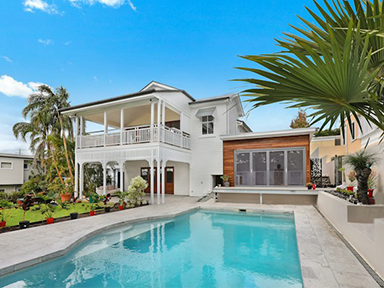Are you a ‘host’ or a ‘landlord’? The answer will help you determine if you can get landlord insurance while you are using your property for Airbnb.
Airbnb, along with other share economy accommodation platforms such as Stayz and Vbro, has never been more popular, with a 5.6% increase in listings across Australia over the past year. With summer around the corner, it is a great time to check your insurance cover, before your first guests check in.
Landlord insurance is an important safeguard for people leasing their property as it protects against the common risks landlords can face, including damage from insured events like natural disasters, theft and legal liability, and tenant-related risks like accidental or malicious damage and loss of rent.
EBM RentCover was one of the first landlord insurance providers to offer a specialist policy for the short-stay accommodation market. This policy protects landlords who rent their properties on a short-term basis, including holiday homes, Airbnb accommodation and serviced apartments, against certain leasing risks. A RentCover Short-term policy can offer cover for both the building and contents or standalone contents if the building is insured by the body corporate under strata.
However, it is important to understand this is a landlord insurance policy, designed specifically for investment properties owners who make their property available to the short-term rental market so not everyone who puts a home on a short-term letting platform for rent can access short-term landlord insurance.
Here are three short-term/Airbnb letting scenarios to help explain the difference.
Scenario one
An owner uses Airbnb to let their holiday home for short stays (less than six months at a time). The property is not the owner’s principal place of residence (e.g. their own home) and is being used to generate an income, meaning it meets the ATO’s description of a residential rental property. The owner is ultimately providing ‘temporary residential accommodation’, or short-term accommodation for periods ranging from one day to six months at a time, as long as that such accommodation is not subject to any tenancy agreement (other than for holiday letting or similar short-term purposes).
Can the owner get short-term landlord insurance? Yes, they can. Because they are leasing an investment property for short periods, and they are providing an entire property which is not their main residence for a guest to rent temporarily. This makes them a landlord.
Scenario two
An owner uses Airbnb to let their main place of residence for short stays. They rent their whole home or just a room to a guest for however long. This sort of ‘home stay’ was the basis for share economy accommodation platforms like Airbnb in the first place – owners sharing their home with a paying guest.
Can the owner get short-term landlord insurance? No, they cannot. Because they are simply sharing their own home with a paying guest, not using the platform to rent out a holiday home or investment property. Although they may be deriving a taxable income from renting out their own home, the home is not considered an investment property as it is primarily for personal use. This makes them a host.
Hosts should check the insurance/guarantees offered by the platforms for cover in relation to guest damage and check for any exclusions on using their home in their home and contents policy.
A boarding, lodging or rooming house is a whole different kettle of fish. These accommodation arrangements, and others where there are multiple leases on the one property, are not covered by EBM RentCover and most other specialist landlord insurance policies.
Scenario three
A tenant leases a home and then uses Airbnb to rent it out (sub-lease) to guests. This is known as professional sub-letting.
Can the owner get short-term landlord insurance? No, they cannot. If an investment property is leased under a tenancy agreement (other than for holiday letting), it is not considered a short-term rental. Landlord insurance policies covering standard leases may be available. But – and this is a big but – if the owner knowingly allows their tenant to sub-lease the premises, they void their policy. Sub-letting is not covered under all EBM RentCover landlord insurance policies (it simply poses too many risks). However, if the owner is unaware of what their tenant is doing, they may be protected against certain risks.
What about the tenant? Can they get short-term landlord insurance? No, they cannot. Landlord insurance is designed to cover the owner of an investment property against defined risks. Only the property owner can take out insurance to protect the premises and the income they derive from it, a tenant cannot. In any event, sub-letting is not covered by landlord insurance. Tenants looking at using their rental to occasionally host guests or to professionally sub-let the premises should check if their tenancy agreement permits using the premises for Airbnb and/or sub-letting.
The takeaway here is that short-term landlord insurance is designed for investment property owners offering the premises for rent on a temporary basis. It is not available to homeowners renting out their own home to guests, or to rental property tenants renting or sub-letting to guests. If you would like to know more, contact the EBM RentCover team on 1800 661 662.
*While we have taken care to ensure the information above is true and correct at the time of publication, changes in circumstances and legislation after the displayed date may impact the accuracy of this article. If you need us we are here, contact 1800 661 662 if you have any questions.
You may also like
View all
A lot has changed in the short-term accommodation market over the past decade. This is what you need to know...

From tiny houses to private islands, there are plenty of booking choices for holidaymakers looking for something a little different…

If you’re one of these ‘short-stay’ landlords, or thinking of becoming one, it’s important to protect your investment with the right insurance...





